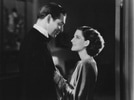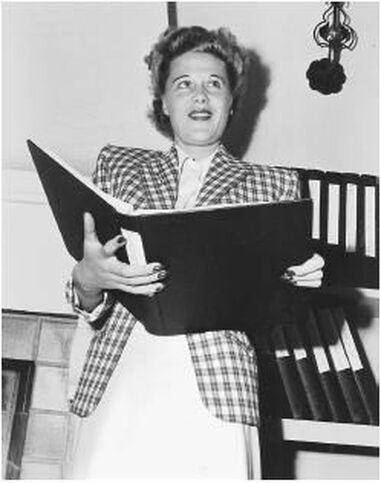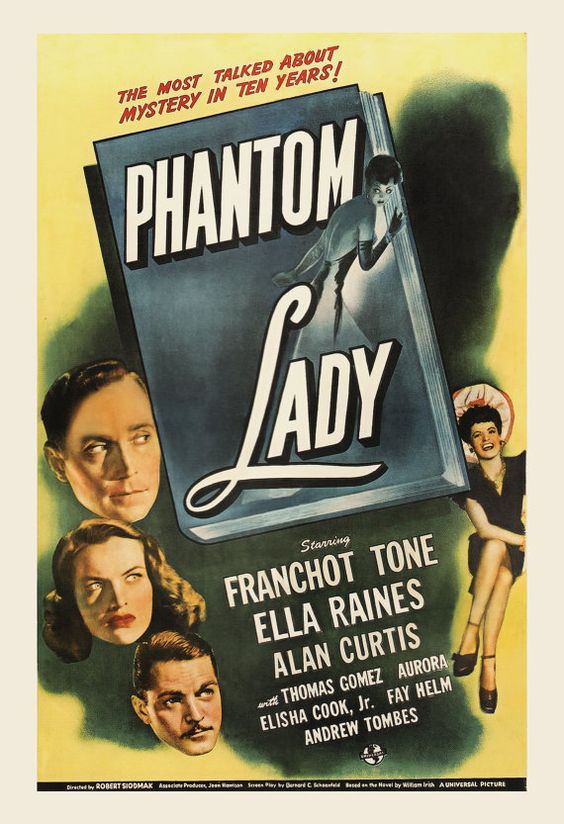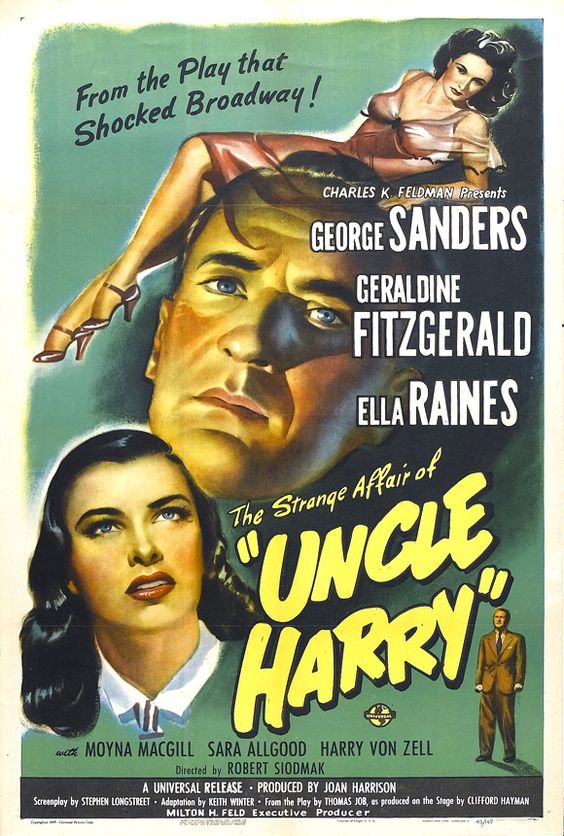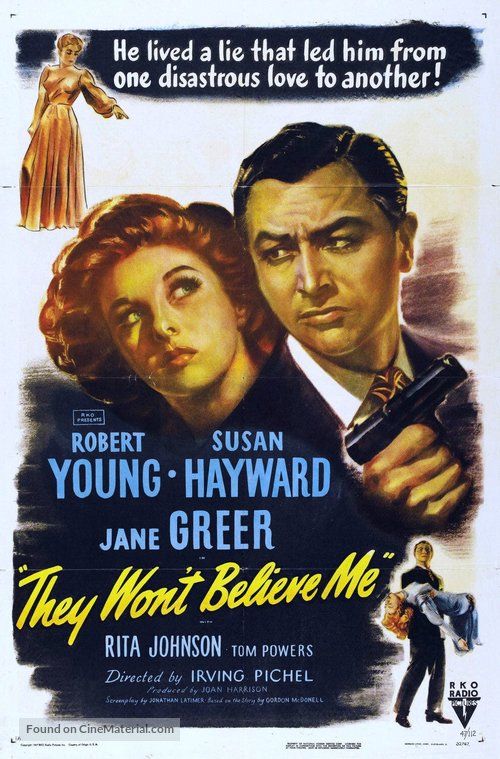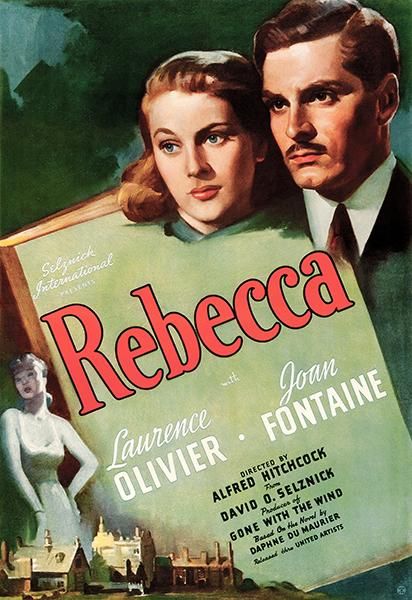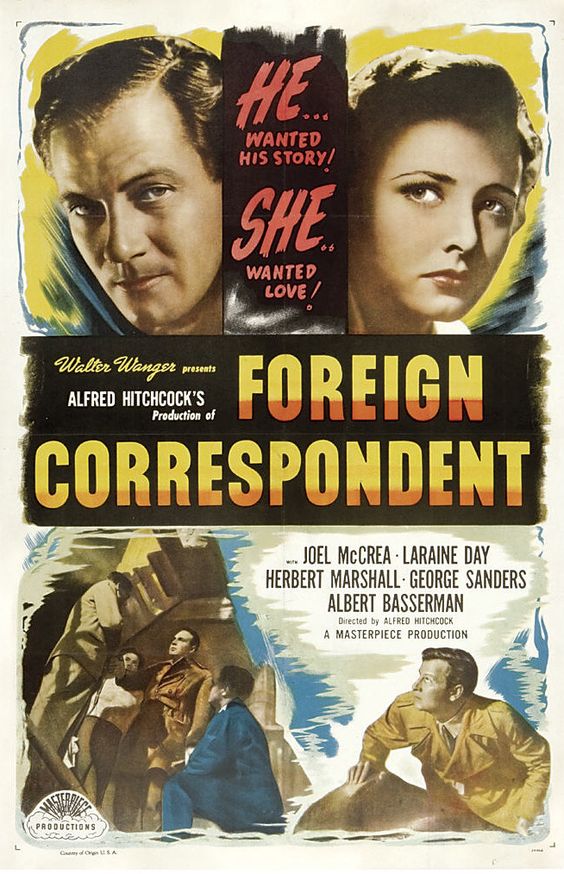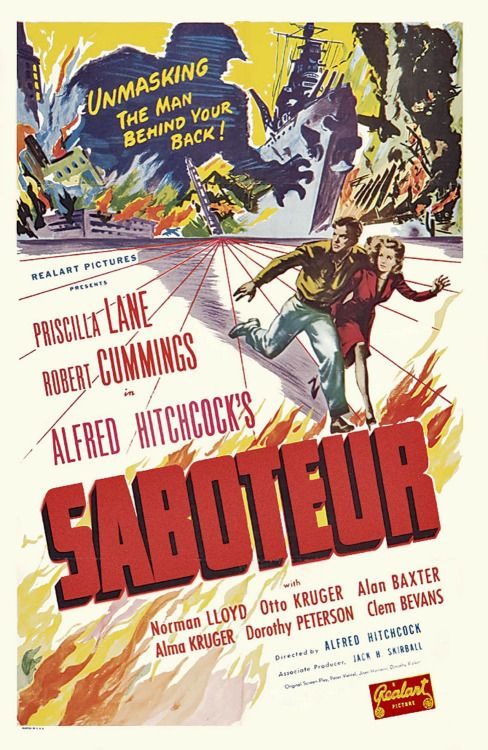Joan Harrison: The forgotten Genius Behind Hitchcock and Film Noir
|
Last weekend at Noir City Detroit we presented Phantom Lady, from 1944. In our introduction we talked about the film as the launching point for Noir master director Robert Siodmak’s American career. We talked about the fantastic cast, including Ella Raines, Franchot Tone, Thomas Gomez and Elisha Cook, Jr. We talked about Cornell Woolrich, who wrote the source novel, but we spent most of our time, talking about the film’s producer, Joan Harrison, an often overlooked, and sometimes ignored, influencer in not just Noir, but in many aspects of film history.
Harrison rose from London shopgirl to Academy Award nominated screenwriter in just 7 years! When she answered an ad for a secretary who could read, write, and speak fluent French and German, she had no idea it would lead to Hollywood, but when you work for Alfred Hitchcock, anything would have been possible. Harrison connected and collaborated with Hitchcock as no one else ever would, rising form secretary to assistant, to story editor and finally to co-writer on 5 of Hitchcok’s films, including Oscar nominations for Rebecca (’40) and Foreign Correspondent (’40). Her love for stories of murder, criminality and darkness would mark her career and help establish Hitch as the master of suspense, a nickname he spent the 1040’s dueling with Phantom Lady’s director Siodmak for. |
When Hitch made the leap from British films to Hollywood, it was Harrison, who was right beside him, in fact travelling across the ocean as Joan Hitchcock. She was an instrumental resource and influencer on how Hitch’s films looked and sounded, but she was never going to establish a name for herself if she stayed on his team. After co-writing the wartime espionage thriller Saboteur (’42) for Hitch, Harrison ventured out on her own, taking a story about a man accused of murder and women out to prove his innocence, to Universal International Pictures. The pitch was successful and Harrison went about putting together the cast, crew, and script for Phantom Lady, her first independent production. Because she was one of the only independent female producers in Hollywood, and sexism ran deep, Harrison was only given an Associate Producer credit on Phantom Lady, a title usually assigned to an assistant or junior staffer, even though she alone produced the film. The finished product belied her relative inexperience, becoming a Film Noir classic and establishing her credibility in Hollywood.
Her next project with Siodmak was The Strange Affair of Uncle Harry (’45), again starring Ella Raines along with George Sanders and Geraldine Fitzgerald. As was typical of Harrison, the production went off without a hitch, on time and under budget, but Universal wasn’t happy with the film and took over the editing of the finished product, infuriating Harrison. In an unprecedented move she walked away from her Universal contract, burning bridges, but standing up for what she believed was right for her film. The film itself actually turned out to be an enjoyable story of familial jealousy and twisted relationships, albeit with a twist ending that was at the center of Harrison’s anger
Her next project with Siodmak was The Strange Affair of Uncle Harry (’45), again starring Ella Raines along with George Sanders and Geraldine Fitzgerald. As was typical of Harrison, the production went off without a hitch, on time and under budget, but Universal wasn’t happy with the film and took over the editing of the finished product, infuriating Harrison. In an unprecedented move she walked away from her Universal contract, burning bridges, but standing up for what she believed was right for her film. The film itself actually turned out to be an enjoyable story of familial jealousy and twisted relationships, albeit with a twist ending that was at the center of Harrison’s anger
Harrison would move to RKO Studios, where she would produce what I consider her best film, They Won’t Believe Me, starring Susan Hayward, Jane Greer, Rita Johnson and Robert Young. The film puts a twist on typical Noir tropes, in that it features an Homme Fatale, a man capable of ruining 3 lives and perhaps ending one. Hayward and Greer are wonderful, but Robert Young plays against type as the scoundrel who puts personal interest before the lives of those around him; a gold digger in classic form. (Stay tuned for more on They Won’t Believe Me in November when I write a longer piece for a “Movies are Murder” blogathon).
Never one to run from a challenge, Harrison rejoined Hitchcock when he launched his weekly shows, Alfred Hitchcock Presents (’57-’62) and The Alfred Hitchcock Hour (’62-’65). She served as primary story editor and producer on more that 250 episodes, guiding the show while Hitch was making movies. Her deft touch with story and pacing helped create some of the most iconic episodes in both series and elevated the programs to iconic status and popular success.
While Harrison took an unlikely path to Hollywood success, she always did it her way, without compromising her goals, but readily working with some of the strongest characters in film history. Her legacy is one of quiet influence, guiding masters behind the scenes and allowing them to create great art without undue controversary or trouble. In essence she was a producer’s producer, which is probably a compliment she would have appreciated.
The Best of Joan Harrison
1. They Won’t Believe Me (Producer)
2.Foreign Correspondent (Co-Writer)
3.Phantom Lady (Producer)
4.Saboteur (Co-Writer)
Ride the Pick Horse (Producer
Never one to run from a challenge, Harrison rejoined Hitchcock when he launched his weekly shows, Alfred Hitchcock Presents (’57-’62) and The Alfred Hitchcock Hour (’62-’65). She served as primary story editor and producer on more that 250 episodes, guiding the show while Hitch was making movies. Her deft touch with story and pacing helped create some of the most iconic episodes in both series and elevated the programs to iconic status and popular success.
While Harrison took an unlikely path to Hollywood success, she always did it her way, without compromising her goals, but readily working with some of the strongest characters in film history. Her legacy is one of quiet influence, guiding masters behind the scenes and allowing them to create great art without undue controversary or trouble. In essence she was a producer’s producer, which is probably a compliment she would have appreciated.
The Best of Joan Harrison
1. They Won’t Believe Me (Producer)
2.Foreign Correspondent (Co-Writer)
3.Phantom Lady (Producer)
4.Saboteur (Co-Writer)
Ride the Pick Horse (Producer
